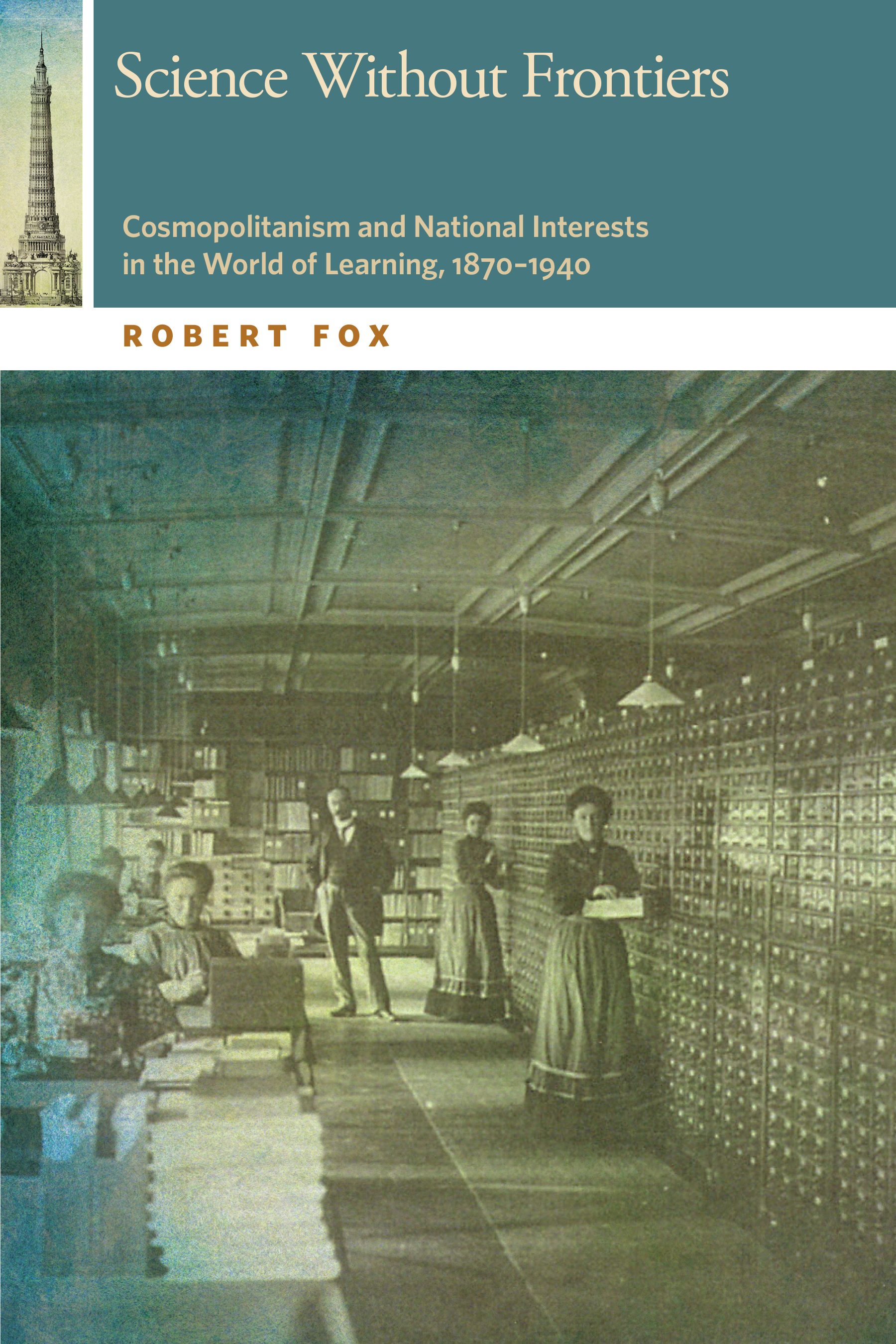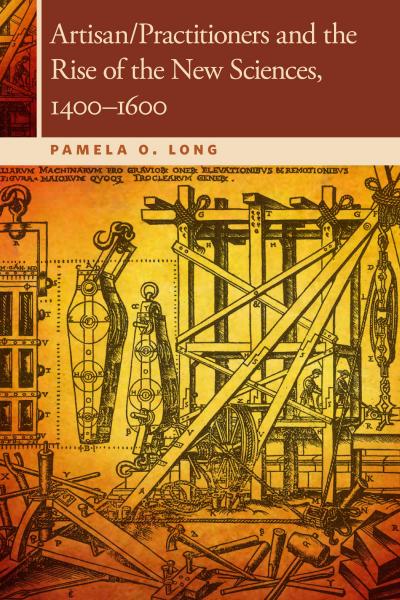
Science Without Frontiers
Robert Fox
In his long career, Robert Fox has specialized in the history of the physical sciences, particularly in France since 1700. In Science without Frontiers, he explores the discipline of science as a model for global society.
Fostered by international congresses and societies, scientific collaboration flourished across linguistic and national borders from the mid-nineteenth century up until, and even after, the First World War. Projects such as the universal language Esperanto and the Dewey decimal system relied on optimistic visions of the future and were fueled by dramatic improvements in communications and transportation. The Institut international de bibliographie, founded in Brussels in 1895, emerged as a center for this collaborative endeavor.
After the First World War, scientific internationalism met with new challenges as governments increasingly sought to control the uses of science and technology. Fox details the fate of cooperative scientific internationalism in Europe and the challenges posed to it by the rise of totalitarianism and the increasingly conflicting force of nationalism. He explores public expressions of scientific nationalism in museum exhibits and, most tellingly, in rival national pavilions at the Paris International Exposition of 1937.
World War II might have shattered internationalist ideals for good, but grounds for optimism remain in the successes of international organizations like UNESCO and in the potential of electronic media as a way to achieve a vision of universal access to knowledge. Science without Frontiers offers a new way to think about science and culture and its relationship to politics amid the crises of the twentieth century.
About the author
ROBERT FOX is Emeritus Professor of the History of Science at the University of Oxford. Educated at Oxford, Fox spent over twenty years at the University of Lancaster before returning to his alma mater in 1988, where he held the chair of History of Science until his retirement. He is the recipient of the History of Science Society’s Sarton Medal, its highest award for scholarly achievement, and of the Alexandre Koyré Medal of the International Academy of the History of Science.
Read more about this author
"In a thoroughly researched and documented work, Fox (emer., history of science, Oxford Univ., UK) traces how early efforts of universalists to memorize or record all scientific knowledge led to the beginnings of bibliographic control and universal classification in the 1800s, such as the publication of the Dewey Decimal System...Fox eloquently contrasts the tenor of science as a universal language with the stark realities of wartime research, the postwar exclusion of German scientists and research from union congresses and publications, and the often futile efforts of scientists to challenge national or regional biases in expositions and museums."
-K.D. Winward, CHOICE
"The book's main contribution lies...in its synthesis of what were previously largely unconnected case studies (covered in an equally useful bibliographic essay). The weaving together has also brought new features to light, however, chief among them the interwar resurgence of nationalism and the strong parallels between developments in the United States, Britain, Germany, and France, as well as Austria, Spain, Italy, and Japan - a major enrichment to the story."
- Geert Somsen, Isis



